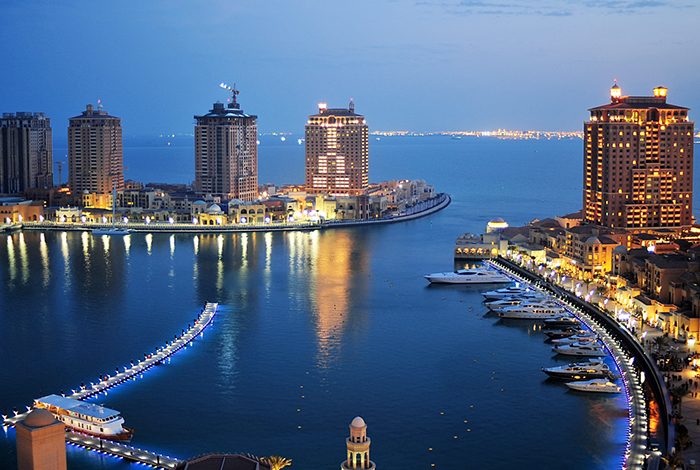 The Qatar Foundation offered an opportunity for students and Instructors this past Fall Semester to participate in a trip overseas. The trip consisted of five professors and ten students, who quickly met the Foreign Minister.
The Qatar Foundation offered an opportunity for students and Instructors this past Fall Semester to participate in a trip overseas. The trip consisted of five professors and ten students, who quickly met the Foreign Minister.
To prepare for the trip, students and professors were given different topics to study as well as some required readings as an orientation. Although Josh Cummins, Adjunct Faculty at Sinclair, had visited areas of the Middle East before, this past November was his first time in Qatar.
“Everywhere we went we were welcome, I never had a bad experience,” Cummins said. However, Cummins said there were definitely some students thatmhad to adjust to a bit of culture shock.
“Qatar is a very interesting country because of the fact it is very diverse. Only about 20 percent of Qatar is Qatari in citizenship,” Cummins said. With a diverse population and unique location, Qatar has emerged from an economy of pearl diving to a bustling economy based on natural gas sales.
Qatar is also known as the “Ivy League of the Middle East” for the presence of prominent University campus branches. Qatar embodies the National Vision 2030—a premise that Qatar will improve by focusing on economic and developmental goals and plans.
Qatar has been the center of many allegations of corruption, from economic policy to human rights violations. Cummins’ research topic was “United States and Qatar relations.” With the price of oil low, Qatar has seen lower profits from its natural gas exports. Cummins explained that with the more recent years of fracking, relations with Qatar, although positive, have shifted towards a potentially competitive energy market.
“I think they’ll continue to play an important role on the world stage,” Cummins said.
Cummins had the opportunity to ask about the numerous concerns on human rights in Qatar with a visit to the Qatar World Cup Committee. Controversy continues over whether the climate and ongoing investigations into human rights abuses will shift the World Cup away from Qatar in 2022.
“There’s been a lot of reports about the corruption in the World Cup and Qatar as hosts for the 2022 World Cup. Qatar has had a lot of issues with human rights with the builders that come to make the facilities. A lot of them are poor and from impoverished countries, so most of the time they end up getting their checks and sending it back to their families,” Cummins said.
Migrant deaths have reached stunning levels, amounting to over 1,200 deaths on the construction of the World Cup facilities, according to BBC and the Washington Post.
Migrant worker conditions, while there is a degree of variance, are very indicative of forced servitude. Human rights groups continue their investigations; some—like BBC—have had their media teams arrested for their investigating.
“They admitted that there have been problems—there have been deaths. They weren’t fully prepared to take on construction on all these new stadiums. I think that’s something they’re working on, they’ve changed some laws recently t o give more rights to these third country workers, they’ve worked on building procedures too,” Cummins said.
Cummins thinks Qatar has a lot of promise. With the potential to be the first Middle Eastern country with a massive transit system and much more, Cummins said he and his colleagues left with the thoughts, “Wow, I want to come back for 2022.”
Students interested in an opportunity like Cummins can contact him for more information. Additionally, taking the Model UN course and participating in the Model Arab League will get you on a mailing list, which would get students further opportunities.
Contact Josh Cummins at Josh.Cummins87@gmail.com or ask your advisor about the next Model UN course to get involved.
Barton Kleen
Managing Editor

